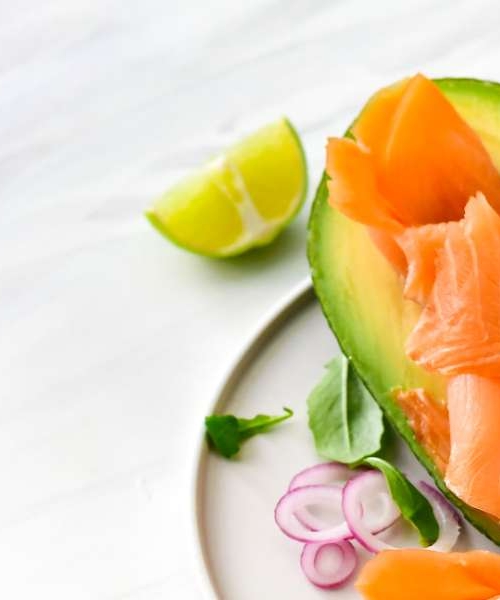The transformative power of gut health
Gut health is a critical yet often overlooked aspect of our overall health. An Evewell patient, Catherine, has written a blog delving into the transformative power of gut health. It all starts with taking small steps to significantly improve your gut health.
The transformative power of gut health
Gut health is a critical yet often overlooked aspect of our overall health. By taking charge of our gut health, we not only improve our well-being but set the stage for lifelong health and vitality.
An Evewell patient, Catherine, has written a blog delving into the transformative power of gut health. And it all starts with taking small steps which significantly improve your gut health.
Why focus on gut health?
The benefits of a healthy gut for both immediate and long-term wellness. Here’s why:
- Positive ripple effect
- When you feel healthier and happier, those around you benefit too — from family to colleagues and everyone in between.
- Immediate and lasting benefits
- Improving your gut health can significantly boost both your mental and physical health – today and for years to come.
The link between gut health and our overall health is a topic of increasing research in the medical community. Recent studies have shown that supporting a healthy gut microbiome is an important cornerstone for immune health and well as overall resilience [1].
The research also indicates that our gut microbiome can affect every organ in our body. So, when our whole body is functioning more efficiently, it is better able to respond to and recover from medical treatment.
What is gut health?
Gut health refers to the balance of microorganisms that live in the digestive tract. Looking after the gut involves nurturing this balance, which can positively impact everything from mood to energy levels, immunity, sleep and yes, even fertility.
Key components of gut health
- Probiotics and prebiotics
- These are essential for maintaining a healthy gut microbiome.
- Dietary choices
- Understanding which foods benefit you the most and which foods don’t serve you well can revolutionise your health immediately and in the long term.
- Knowledge is power
- Learning to listen to your body and respond to its needs, rather than following rigid dietary restrictions or societal norms, is the most empowering gift you can give yourself.
How can you start improving your gut health today?
Here are my favourite 5 tips to get you started with enhancing your gut health:
1. Check the efficiency of your gut: Measure Your Transit Time with a Beetroot Test
The beetroot test is a simple, practical way to measure how efficient your gut is. The transit time refers to how long it takes to eat food and eliminate waste. To conduct this test:
- Eat a significant amount of cooked beetroot: e.g. a whole large beetroot.
- Observe the colour of your stools: Beetroot naturally dyes your stools pink. Note the time you eat the beetroot and the time you first notice the pink colour on the paper.
- Assess the results: A healthy transit time is generally between 12 to 24 hours. Longer times might indicate slow digestion, which could be due to insufficient fibre intake, dehydration, or other health issues. It’s crucial to address this so that the body can eliminate waste effectively and avoid build-up or inflammation.
2. Count plants, not calories: aim to consume 30+ plants weekly
Increasing the diversity of plants in your diet can enhance your gut microbiome and overall health by providing a wide range of nutrients and fibres which feed different beneficial bacteria in your gut. Tips to diversify your diet include:
- More, more, more
- Try to include as many different colours and types of vegetables, fruits, legumes, grains, nuts, and seeds as possible. Each colour and type offers unique nutrients and fibres.
- Challenge yourself
- Set a goal to try new plant-based foods each week or use a checklist to track how many plants you’re actually consuming in a week.
- Plan meals around plants
- Make vegetables and fruits the centrepiece of your meals, rather than just sides.
3. Stay hydrated: develop habits that help maintain adequate hydration
Water is crucial for digestion as it helps break down food and absorb nutrients effectively. However, drinking too much water during meals can dilute stomach acid and digestive enzymes, making digestion less efficient. Here are some strategies to stay hydrated:
- Drink water throughout the day
- Aim for at least 2 litres per day, adjusting based on your activity level and climate.
- Avoid excessive drinking during meals
- Limit fluid intake 30 minutes before and after meals to help preserve digestive enzyme activity (our saliva has digestive enzymes, which is why we don’t want to dilute them with lots of water at meal times)
- Use reminders
- Set reminders on your phone or keep a visible water bottle at your desk to encourage regular sips throughout the day.
4. Mind your microbiome: incorporate fermented foods and consider supplements
Fermented foods are rich in probiotics, the beneficial bacteria that play a critical role in gut health. Regularly including these in your diet can help maintain a healthy microbiome balance. Consider these options:
- Include a variety of fermented foods
- Such as yoghurt, kefir, sauerkraut, kimchi, miso, and tempeh on a daily basis.
- Consider supplements
- Even with the best will in the world, it’s tricky to get the full suite of nutrients our bodies need daily. To help your microbiome thrive, high-quality supplements can be worth their weight in gold. For probiotics in particular, choose a supplement with diverse strains and follow the recommended dosage.
5. Reduce stress when eating: simple breathing techniques before meals
Stress can significantly impact your digestive system by diverting energy from the digestive process to other areas of the body needed for a ‘fight or flight’ response. Managing stress through breathing techniques can improve digestion by:
- Practising mindful breathing
- Before each meal, take two minutes to breathe deeply. Inhale slowly through your nose, hold for a few seconds and exhale slowly through your mouth.
- Creating a calm eating environment
- Simply removing distractions and focusing on your meal can significantly increase digestive efficiency.
Implementing these steps not only supports gut health but also enhances overall well-being, contributing to a healthier, more vibrant life.
Interested in finding out more?
I am delighted to offer free gut health coaching to all Evewell patients. This includes a detailed consultation and personalised guidance through the 30-day gut health reset which transformed everything for me.
To book your free coaching session and take the first step towards a happier, healthier you – click here.
More about Catherine Hutt
After 16 years in the corporate world and two business degrees, Catherine had a significant change of career. Thanks to the gut health reset which healed her from postnatal depression and led to her becoming the happiest, healthiest version of herself she’s ever been, Catherine felt compelled to share the power of gut health with others.
Today, she is a burgeoning Functional Medicine Health Coach, specialising in gut health. Her mission is to empower others to reach their next level of wellness by helping them understand and optimise their gut health. This isn’t just about feeling better; it’s about a fundamental shift in how we understand our bodies and what they need to thrive.
She loves coaching people through the transformative 30-day gut health reset, inspired by her life experience, plus her Functional Medicine Health Coaching education, from Forbes #1 Health Coaching qualification (FMCA).
She’s an IVF veteran, and lives in London with her husband Rob, daughter Amélie and bump.





